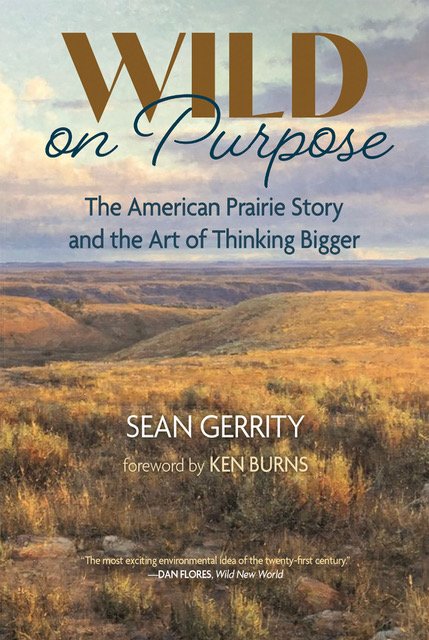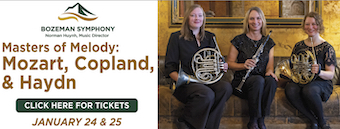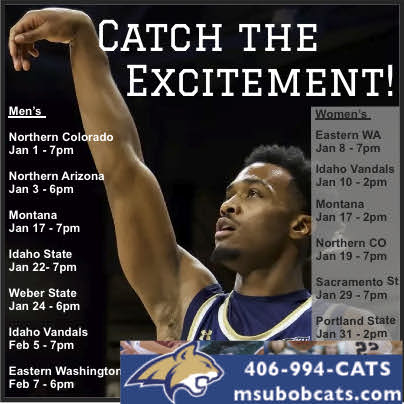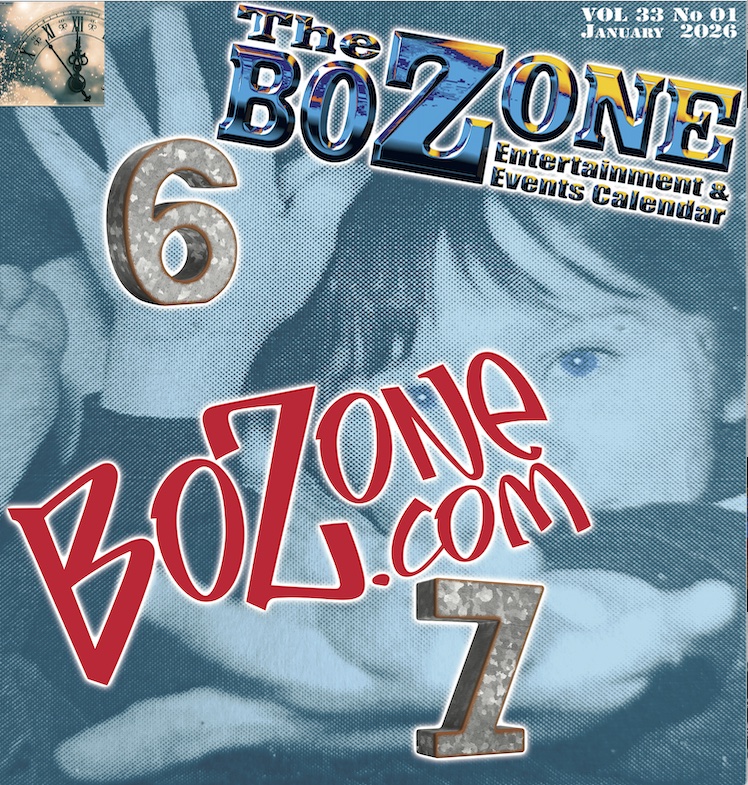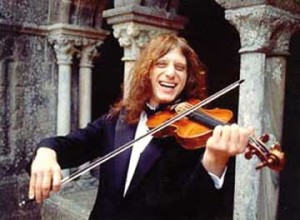 Internationally renowned violinist Alexander Markov has been hailed as one of the most captivating musicians of our time. In anticipation of his upcoming performances with the Bozeman Symphony on February 6th and 7th, the Rolling Zone was able to ask the man himself a few questions about his music and milestone-filled career.
Internationally renowned violinist Alexander Markov has been hailed as one of the most captivating musicians of our time. In anticipation of his upcoming performances with the Bozeman Symphony on February 6th and 7th, the Rolling Zone was able to ask the man himself a few questions about his music and milestone-filled career.
RZ: You’ve appeared as a soloist with ensembles such as the Philadelphia Orchestra, the BBC Symphony, and the Budapest Festival Orchestra. Having performed in Bozeman previously, what keeps you coming back to a stage–both literally and figuratively–somewhat smaller than the ones you might be used to?
AM: There are two main reasons that keep me coming back–one is working with Maestro Savery. Matthew is a great American conductor. We’ve worked together many times by now, most recently at Carnegie Hall, and his musicality and professionalism is just amazing! We’ve became good friends too, so it’s always a pleasure. The second reason is I enjoy this relaxing and beautiful part of the country and the Bozeman Symphony is the very enthusiastic and wonderful Orchestra. So it’s a win-win!
RZ: As an extension of the previous question, how do you compare these performances and the audiences’ response at more intimate venues to those on a grander scale?
AM: I enjoy the dynamics and diversity of each different venue and audience. I try to see and appreciate the “moment” of each concert since every audience is so unique every time. I take every concert very seriously. So it really doesn’t matter whether it’s a more intimate venue or a grander scale…what really matters is the energy and connection with the audience and a great interaction with conductor and musicians on stage because that’s what really makes music-making a truly unique experience.
RZ: What can longtime fans expect from your upcoming Willson Auditorium performance and why will newcomers likely become devotees shortly after the opening arrangements?
AM: Every time I perform, I try to offer something fresh, new, and unexpected to the audience so I hope this time it won’t be an exception for my longtime fans. As for the new fans, I hope I won’t disappoint them as well. I like performing live to death so I hope my passion translates to all the audiences.
RZ: Classical music is clearly a passion of yours. What other sorts of genres are you enthusiastic about and how do these influence the musical arrangements you create for your own discography and performance selections?
AM: I enjoy many kinds and genres of music. One famous jazz musician once said “There are two kinds of music–good and bad” and I agree. So I enjoy Rock’n’Roll, house, blues, metal, you name it. It sure helps with my classical performance as it develops my imagination and creativity.
RZ: How did your childhood, in Russia and then the United States, influence how your craft came to be? Comparatively, how is classical music regarded in the U.S. as opposed to abroad? What experiences can you share on this front?
AM: Since my father, concert violinist and teacher Albert Markov, was my main teacher, he was my biggest influence and taught me so much. By the way, we still play sometimes together in duo-programs! Classical music abroad, especially in Europe, I think has a more mainstream appeal but America has the most amount of famous great orchestras.
RZ: You’re in the company of some of the most celebrated and respected artists within the string instrument community and, in turn, greater music industry. To what do you attribute your success and membership with this exclusive club?
AM: Well first of all, thank you…I started my career and performing at a very young age when I realized that’s what I wanted to do for the rest of my life. I guess passion and perseverance was the key for realizing my dream.
RZ: You’ve made a career out of performing on countless stages with many of the greats, but have also put out a decent amount of material in the years spanning your career. Can you give us a glimpse into your process from the early creative stages to final revisions and completion of an arrangement? At what point is a composition, borrowed or original, performance ready?
AM: I think one paragraph is not enough to give an idea but I’ll do my best! “Baby steps” is my answer to almost everything in music. I start with the basics and then build and work on the priority til it’s finished. Kind of when you’re constructing a new building…you start first with digging a foundation and finish off with finalizing each detail in each room of the building, etc., etc.
RZ: Do you see yourself ever slowing down or is the life you know for the foreseeable future? AM: At the moment, I feel like I’m only getting started!
RZ: I’m sure there are probably many, but can you describe one or even a couple favorite memories or milestones–on or off stage–from your illustrious career?
AM: My solo debut at Carnegie Hall as a 16-year-old was very memorable since it was my first time at this famous venue…but more recent is when I performed in front of 25,000 people during the half time at the NBA game! I guess what attracts me the most is when I do something unusual and new for the first time. Also very memorable was performing recently with Matthew Savery at Carnegie Hall. We both felt we were on fire that night and the big audience at Carnegie Hall felt it and picked up on that. That felt amazing. Matthew and I make a great team and now it’s exciting to bring a similar program to Bozeman!
RZ: What advice can you give to those who don’t call themselves classical fanatics, but can appreciate and enjoy its sound? What is the best way to absorb and experience this variety of instrumental?
AM: I guess my best advice is to try to find your own personal appreciation from it as opposed to see what others find and say what’s interesting about it. I think each person has very individual feelings and emotions, so only listen to your own reaction…and hopefully that could be a new musical discovery.
Tickets to “Return to Carnegie” are available to purchase starting at $22 per student and $27 per adult. These are available online at Bozemansymphony.org, by phone at (406) 585-9774, or in person at the Bozeman Symphony Society Offices at 1001 West Oak Street, Suite 110. Performances will be Saturday, February 6th at 7:30pm and Sunday, February 7th at 2:30pm in the Willson Auditorium at 404 West Main Street. Program selections will include: Serenade, op. 48, C major by Piotr Ilyich Tchaikovsky, Ciaccona, Violin & Strings by Tomaso Vitali and Le Quattro Staggioni, op. 8 (The Four Seasons) by Antonio Vivaldi. Bozeman Symphony gives special thanks to Bruce Jodar, Kimberlie Birdwell, and Mountain Hot Tub, their generous concert sponsors for making this weekend possible. These are sure to be memorable concerts! •

